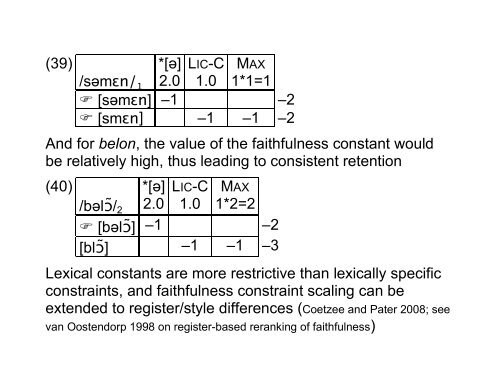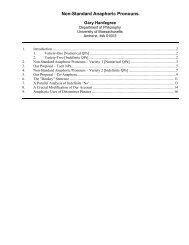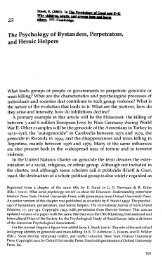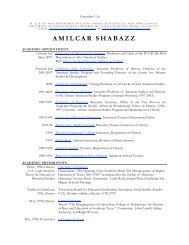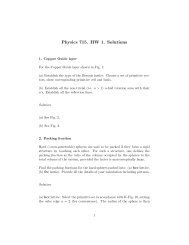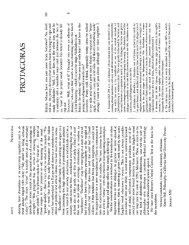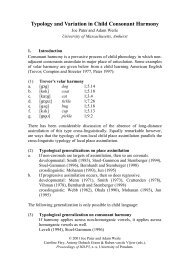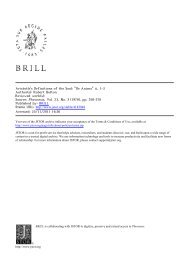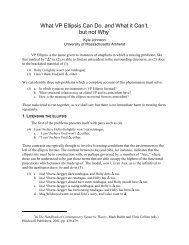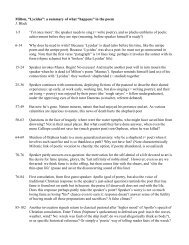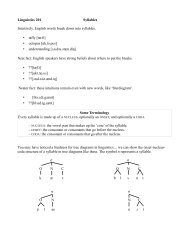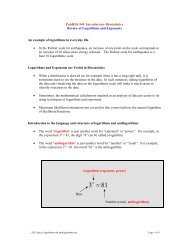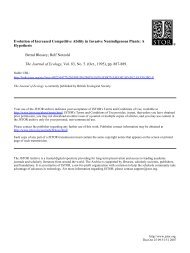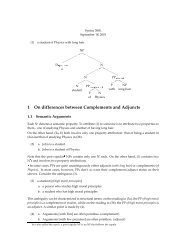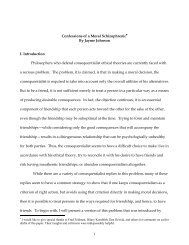Lexically conditioned variation in Harmonic Grammar
Lexically conditioned variation in Harmonic Grammar
Lexically conditioned variation in Harmonic Grammar
You also want an ePaper? Increase the reach of your titles
YUMPU automatically turns print PDFs into web optimized ePapers that Google loves.
(39)<br />
*[ә] LIC-C MAX<br />
/sәmɛn/ 1 2.0 1.0 1*1=1<br />
[sәmɛn] –1 –2<br />
[smɛn] –1 –1 –2<br />
And for belon, the value of the faithfulness constant would<br />
be relatively high, thus lead<strong>in</strong>g to consistent retention<br />
(40)<br />
/bәlɔ̃/2<br />
*[ә]<br />
2.0<br />
LIC-C<br />
1.0<br />
MAX<br />
1*2=2<br />
[bәlɔ̃] –1 –2<br />
[blɔ̃] –1 –1 –3<br />
Lexical constants are more restrictive than lexically specific<br />
constra<strong>in</strong>ts, and faithfulness constra<strong>in</strong>t scal<strong>in</strong>g can be<br />
extended to register/style differences (Coetzee and Pater 2008; see<br />
van Oostendorp 1998 on register-based rerank<strong>in</strong>g of faithfulness)


